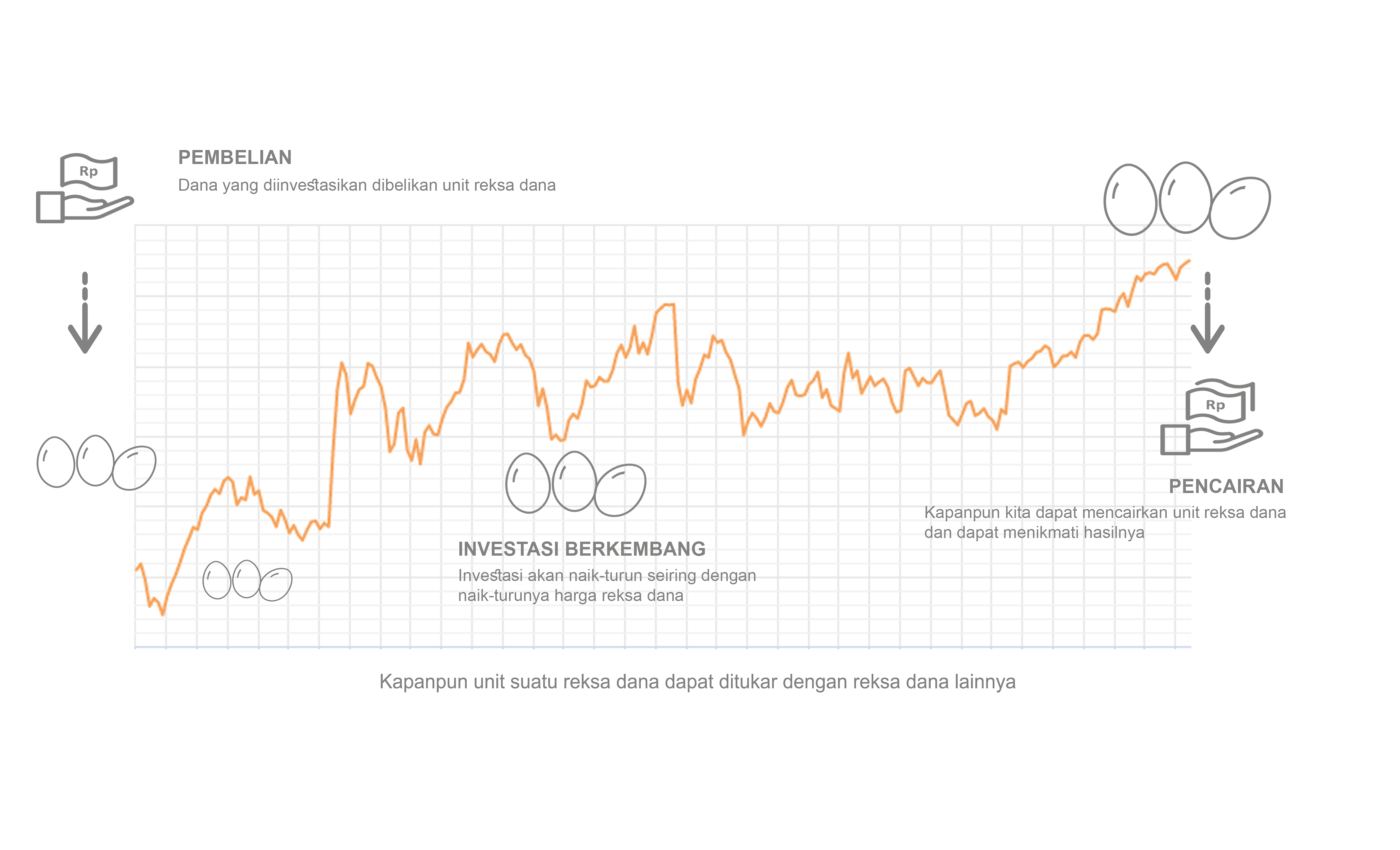

Mutual funds are an alternative investment for the investor community, especially small investors and investors who do not have much time and expertise to calculate their investment risk. Mutual Funds are designed as a means to collect funds from people who have capital, have the desire to invest, but only have limited time and knowledge. In addition, mutual funds are also expected to increase the role of local investors to invest in the Indonesian capital market.
Generally, the Mutual Fund is defined as the containers used to collect funds from the investor community for further investments in the portfolio by the Investment Manager.
Referring to the Capital Market Law No. 8 of 1995, article 1 paragraph (27) is defined that an Investment Fund is a container used to collect funds from the investor community to be subsequently invested in a securities portfolio by an investment manager.
There are three things related to this definition, First, the existence of funds from the investor community. Second, the fund is invested in a securities portfolio, and Third, the fund is managed by an investment manager.
Funds in an Investment Fund are investor funds, while investment managers are parties who are trusted to manage these funds.

Benefits obtained by investors by investing in Mutual Funds:
1. Even though investor do not have sufficient funds, Investor can diversify their investments in securities, that will minimize the risk. For example, investor with limited funds can have a bond portfolio, which is impossible if he does not have large amount of funds. With Mutual Funds, large amounts of funds will be collected so it's will facilitate diversification of both instruments in the capital market and money market, which mean investments are made in various types of instruments such as deposits, stocks, bonds.
2. Mutual Funds make it easier for investors to invest in the capital market. Determining good stocks to buy is not an easy job, but requires special knowledge and expertise, where not all investors have that knowledge.
3. Time efficiency. By investing in Mutual Funds at the funds are managed by professional investment managers, investors do not have to bother to monitor the performance of their investments because they have been transferred to the investment manager.
As with other investment vehicles, in addition to bringing various profit opportunities, the Mutual Fund also contains various risk opportunities, including:
1. Risk of Reduction in Participation Unit Value
This risk is influenced by the falling prices of Securities (stocks, bonds and other securities) which included in the Mutual Fund portfolio.
2. Liquidity Risk
This risk concerns the difficulties faced by Investment Managers if most of the unit holders redeem their units. The Investment Manager has difficulty in providing cash for the redemption.
3. Default Risk
This risk is the worst risk, where this risk can arise when an insurance company insuring the assets of an Investment Fund does not immediately pay compensation or pay less than the coverage when unwanted things happen, such as defaults from parties related to the Mutual Fund Funds, brokers, custodian banks, payment agents, or natural disasters, which can cause a decrease in Investment Fund Net Asset Value (NAV).
Looking from the investment portfolio, mutual funds can be divided into:
1. Money Market Funds
This type of Mutual Fund only invests in Debt Securities with due date less than 1 (one) year. The aim is to maintaining liquidity and maintaining fund.
2. Fixed Income Funds
This type of Mutual Fund invests at least 80% of its assets in the form of Debt Securities. This Mutual Fund has a relatively greater risk than Money Market Mutual Funds. The aim is to produce a stable rate of return.
3. Equity Funds
Mutual funds which invest at least 80% of their assets in the form of Equity Securities. Because the investment is carried out in shares, the risk is higher than the previous two types of Mutual Funds but produces a high rate of return.
4. Balance Funds
This type of Mutual Fund invests in Equity Securities and Debt Securities.
1. Mutual Fund Investor
2. Investment Manager
3. Custodian Bank
4. Financial Services Authority (OJK)
5. Selling Agent (APERD)